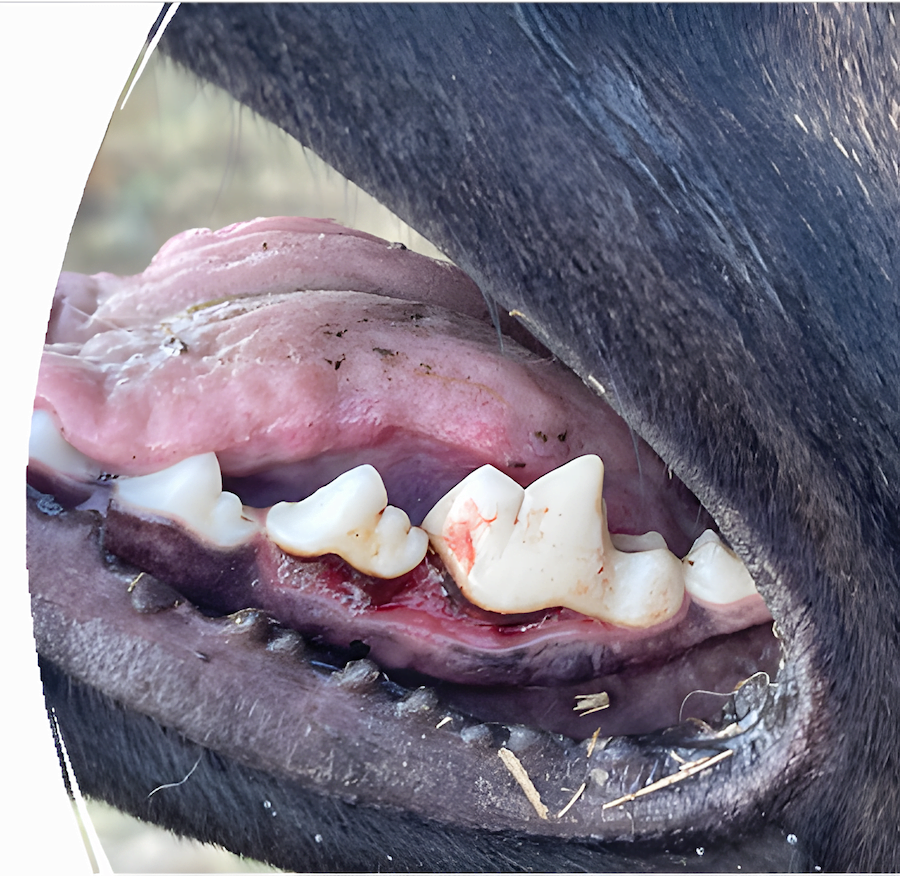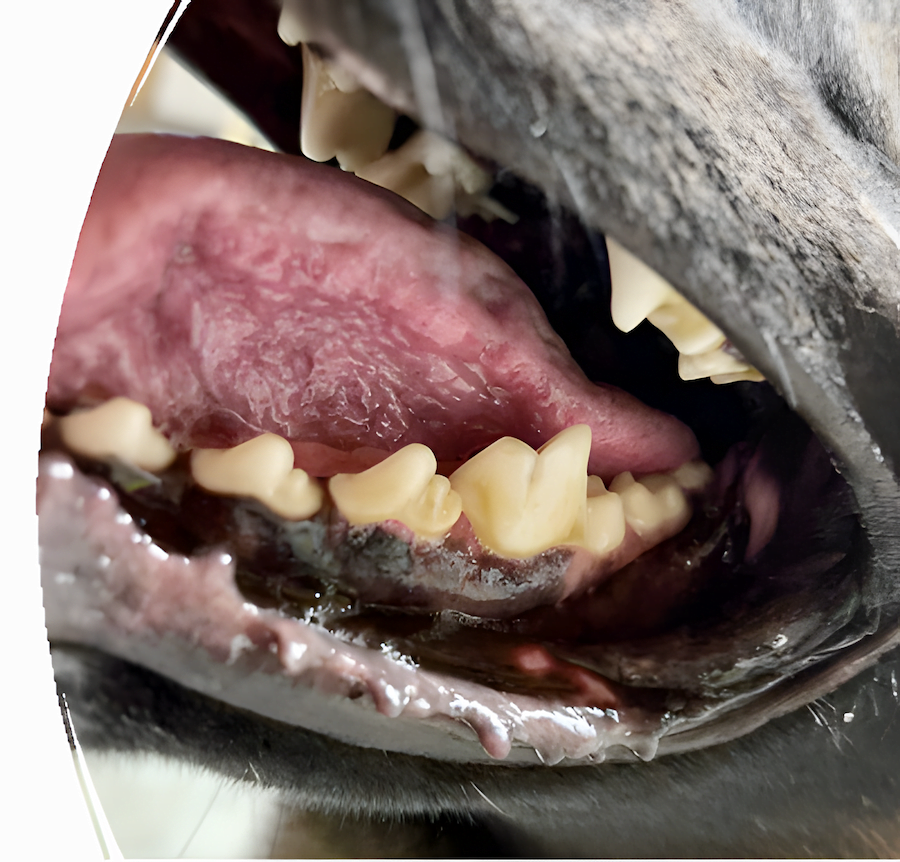After a rigorous five-year investigation, the Topikos Biofilm Research Institute (TBRI) has unveiled a significant leap in treating periodontitis, based on extensive research with over 100 dogs suffering from gingivitis and periodontitis. This pioneering work has laid the foundation for a novel treatment approach that promises to transform dental health management in dogs, marking a pivotal moment in veterinary dental science.
The Study
Under the guidance of our experts, Dr. Kevin Cawood, Dr. William Cast, and Dr. Michael Bechill, the trial employed a dual approach of traditional dental care coupled with our groundbreaking antibiofilm compound. This trial aims to illuminate the path towards a healthier future for our canine companions, assessing the compound’s efficacy in fostering significant oral health improvements.

A one-year-old Belgian Malinois was diagnosed with advanced periodontitis, featuring a chronic lesion in the furcation area.

Forty-five days post-administration, the treatment solution exhibited prolonged adherence to tissue, lasting approximately a month. This sustained engagement underscores the solution’s lasting impact.
Promising Results
The study showcased remarkable findings: a single application of the treatment solution notably cleared periodontal disease symptoms within approximately two weeks. Serial next-generation sequencing (NGS) studies confirmed the sustained health of treated dogs over six months, highlighting improved symptoms and breath. Moreover, the treatment’s efficacy was not limited by the dog’s size, breed, or initial disease severity, indicating its broad applicability. These results signal a significant advancement in treating periodontitis and gingivitis, offering a new beacon of hope for pet health care.
Implications for Veterinary Medicine
The TBRI study’s outcomes could significantly alter veterinary dental practices by introducing an effective, non-invasive treatment for periodontal diseases. This could lead to wider adoption of preventive care routines and minimize the need for surgeries, thereby enhancing overall pet health and potentially extending the life expectancy of animals suffering from dental issues. The implications of this research stretch beyond immediate dental health, suggesting a holistic improvement in the well-being of pets due to reduced pain and infection risk.
Future Directions
With these encouraging results, further research is anticipated to validate the long-term benefits and practical applications of this treatment.
